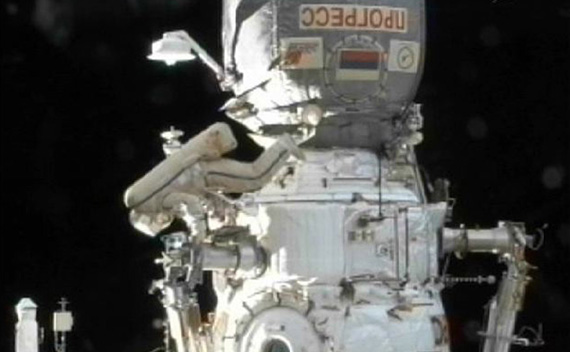Guest Post: New Space-Faring Nations and U.S. Space Policy
More on:

My colleagues at CFR’s International Institutions and Global Governance program provide an update on international space governance, which is sure to require more attention in the near future.
In recent years, the number of countries that rely on space for military, commercial, and scientific purposes has skyrocketed. The result, as Deputy Secretary of Defense William Lynn observes, is a domain that is increasingly “congested, competitive, and contested.” For example, the International Space Station, some 1,100 active satellites, and space debris flying at 29,000 miles per hour, increasingly pass dangerously close to one another. This traffic threatens the operations of civil, military, and commercial satellites.
A few weeks ago, CFR’s International Institutions program invited U.S. and foreign policymakers to discuss the prospects for fundamental rules of the road, and potential roadblocks to building international agreement on space-related issues. A few highlights from the rapporteur’s report:
- The space debris problem is a classic global governance dilemma: though eleven states can launch satellites, and over sixty countries or government consortia own or operate the active satellites, no one country or group of countries has the sovereign authority or responsibility for regulating space.
- The U.S. Strategic Command’s Joint Space Operations Center (JSpOC) that monitors space debris tries to encourage responsible engagement in space through leading by example. They therefore even notify the Chinese government when their satellites are threatened by space debris created by China’s 2007 anti-satellite test. Despite JSpOC’s best efforts, however, these same officials acknowledge that no country has the resources, technical expertise, or geography to meet the growing demands for space situational awareness.
- In addition to collision threats, a range of other space security concerns are taking shape. China is developing a broad range of worrying space technology ranging from military reconnaissance systems to anti-satellite weapons that endanger the assets of all space-faring nations. Iran jams satellites that carry Voice of America and al-Jazeera broadcasts, and even Ethiopia has succeeded in jamming satellites.
Past cooperation and related successes that may serve as useful models as the world attempts to build an integrated, comprehensive set of procedures include:
- As early as 1972, the United States and the Soviet Union were sharing technical data and jointly drafting contingency plans for environmental satellites.
- In the 1990s, the Clinton Administration and the European Space Agency (ESA) agreed to share responsibility for two polar orbiting satellites on which both the United States and Europe relied. The United States ceased to launch its mid-morning satellite and relied on information from the European mid-morning satellite, and Europe discontinued its afternoon satellite as the United States shared the U.S. afternoon satellite data. Experts say that this cooperation saved both parties billions of dollars.
Still, significant disagreements threaten to disrupt the effort to agree to international norms. For example,
- Rising powers are likely to view a proposed international treaty with suspicion, assuming that the United States and Europe are trying to constrain their development and are not prepared to accept restrictions on their own activity in space.
- Transparency is not universally practiced by space-faring nations, and China, in particular, is reluctant to publicly announce its activities.
There is currently a proposal on the table to internationalize the European Code of Conduct for Outer Space Activities (CoC) and Australia, the United States, and Japan have expressed preliminary support for the proposal. But the plan does have its flaws. It’s drawn criticism for lack of international input during the drafting process. Brazil in particular objects to the EU Code of Conduct as a European endeavor developed without adequate consultation with other countries, especially from the developing world. Brazil demands that space governance be addressed in a proper forum at the United Nations, but experts caution that a UN consensus would take at least four years.
In sum, an international space policy agreement is becoming more and more necessary, though policymakers need to devote greater time and energy to both maintain current cooperation and develop a feasible solution to avoid potential clashes in space.
More on:
 Online Store
Online Store